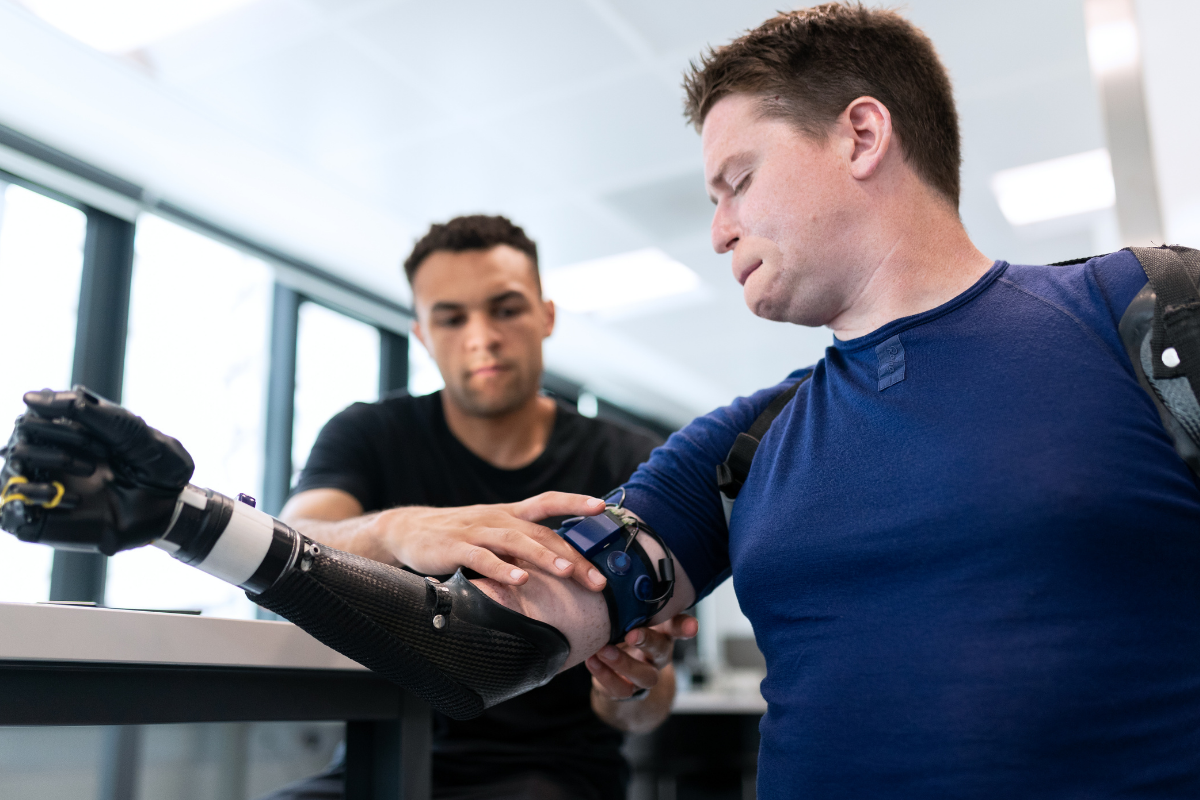
Getting a prosthetic that fits your life shouldn’t be a one-size-fits-all process. With an in-home prosthetic fitting in Warrenton, VA, Firstcare Orthopaedics brings care directly to you where it matters most. Your home is more than just a place to live; it’s where you live, work, and face daily challenges.
Tailoring your prosthetic to your actual environment can make a huge difference in how you adapt and thrive. Adjustments for your flooring, furniture, and even stairs are all part of creating a device that works for you.
Firstcare Orthopaedics is committed to making the process personal, practical, and focused on your needs.
Tailored to Your Home’s Layout
Every home presents its own challenges, and your prosthetic should match how you move through those spaces. During an in-home fitting, the prosthetist carefully studies the layout to understand what adjustments will help you move more naturally.
Small changes can make a big difference when navigating familiar areas safely and comfortably.
Here’s how a home-based assessment improves your daily experience:
- Customized Alignment for Everyday Obstacles – Staircases, uneven floors, and narrow doorways require specific alignment tweaks. Addressing these details helps reduce strain and lowers the risk of tripping or fatigue.
- Better Step Confidence in Tight Spaces – Hallways or bathrooms with limited room can make balance tricky. Tailoring your prosthetic’s response to tighter turns or stops improves your control and stability.
- Adjustments for Flooring Types – Tile, carpet, and hardwood affect how a prosthetic grips and moves. A fitting in your home helps the device respond correctly to the surfaces you walk on most.
A prosthetic designed with your home in mind can transform how you move through daily routines, making every step feel more natural and secure.
Stair and Obstacle Navigation
Many homes include stairs, uneven flooring, or tight doorways that can be difficult to manage with a new prosthetic. An in-home prosthetic fitting in Warrenton, VA, helps ensure your device can handle these real-life challenges. Each step becomes more stable and controlled when the fit matches your space.
Support doesn’t stop at adjustments. During the visit, your prosthetist can teach you how to move safely through common obstacles. These personalized tips help you feel more confident and reduce the risk of slips or falls at home.
Building Confidence at Home
Getting used to a new prosthetic can feel easier when you’re in a place you know well. Practicing at your home helps you feel more relaxed and focused because familiar sights and sounds surround you. That comfort gives you the space to learn without feeling rushed or overwhelmed.
As you move through your daily routine, you get to work on real movements that matter most to you. Walking to the kitchen, stepping into the shower, or going up your front steps all become part of your learning. This practice builds confidence and helps you trust your prosthetic more daily.
Experience the Difference with In-Home Prosthetic Fitting in Warrenton, VA
Firstcare Orthopaedics is here to make your prosthetic journey as smooth and personalized as possible. With in-home fittings, you’ll get care tailored to your space, needs, and daily life. Schedule your fitting today and take the first step toward greater comfort and mobility.
Key Takeaways
What are the benefits of getting a prosthetic fitting done in my home?
An in-home prosthetic fitting allows the device to be adjusted specifically for your living space. This leads to better comfort, safer movement, and a smoother transition into everyday activities.
Can my prosthetic be customized for stairs, flooring, and other challenges in my home?
Yes, a home visit lets the prosthetist see and adjust for real obstacles like stairs, uneven flooring, or tight spaces. These custom changes help improve balance and reduce the risk of trips or falls.
Why is it helpful to practice with a prosthetic in my own home?
Practicing where you live helps you feel more confident and comfortable during your recovery. It also lets you master movements that are part of your daily routine, like walking to the kitchen or climbing your front steps.



